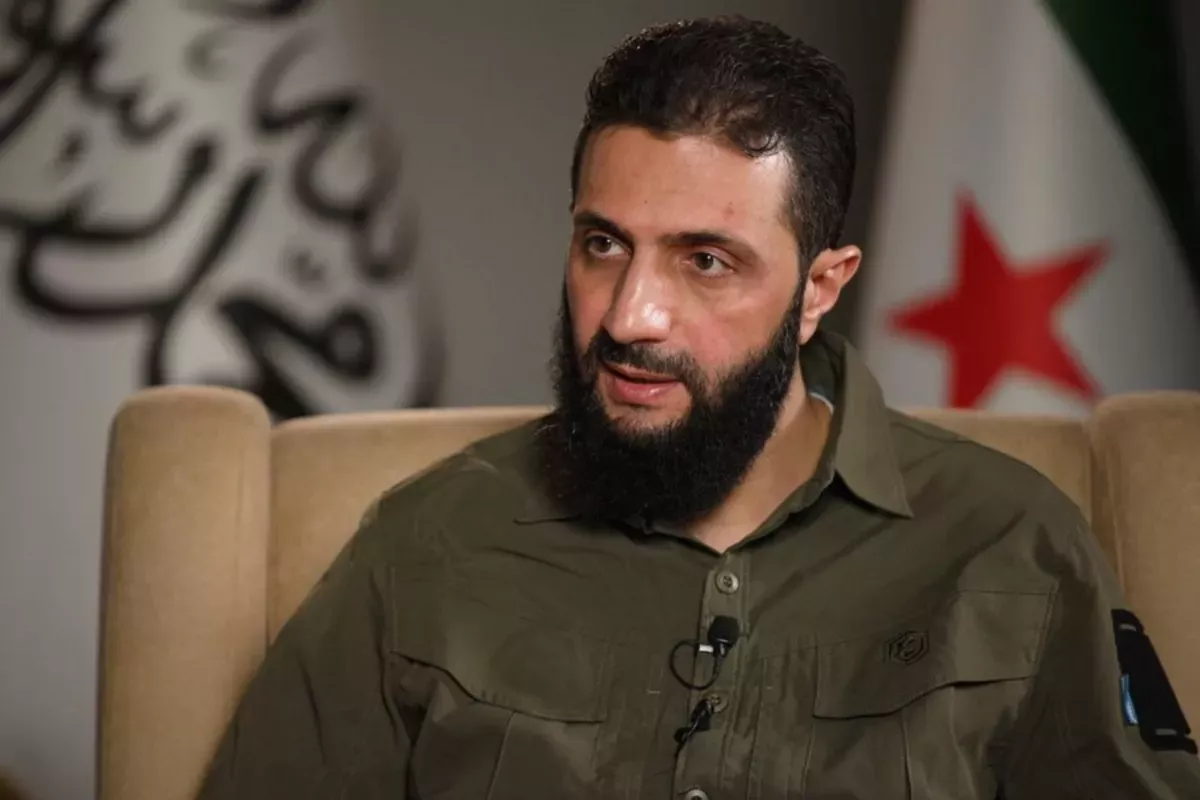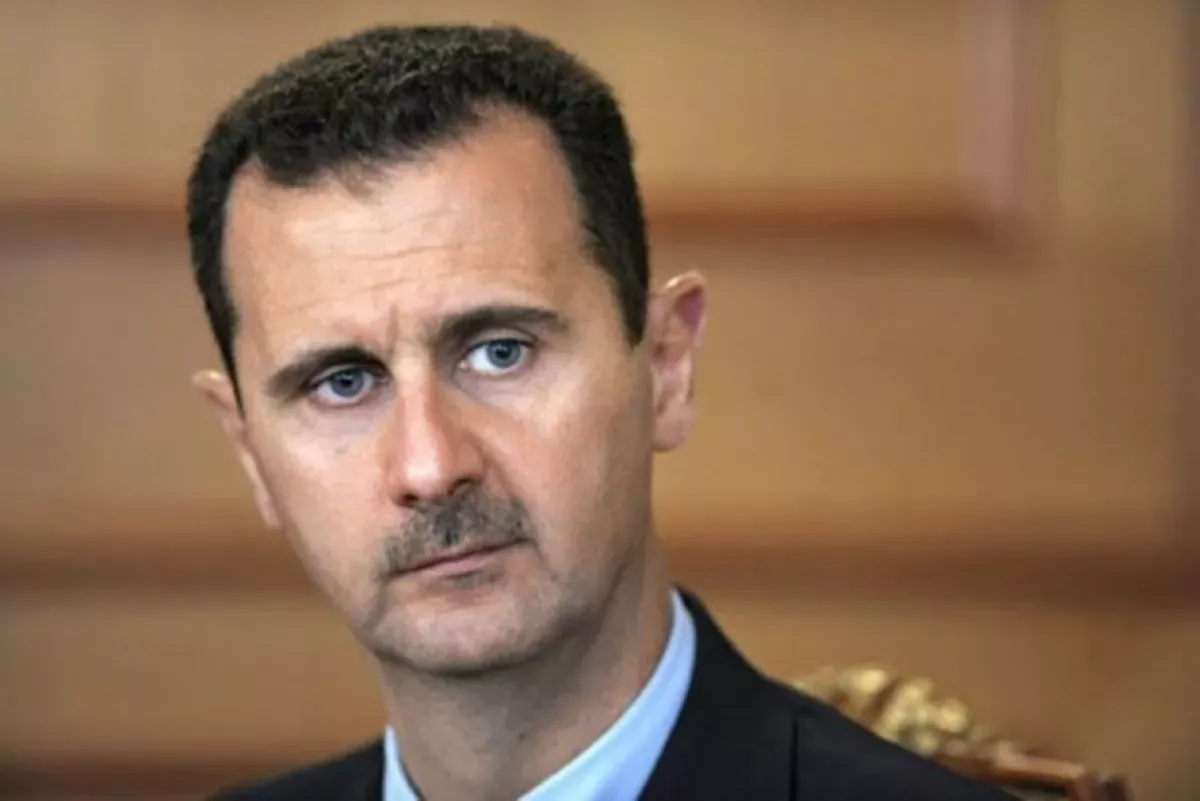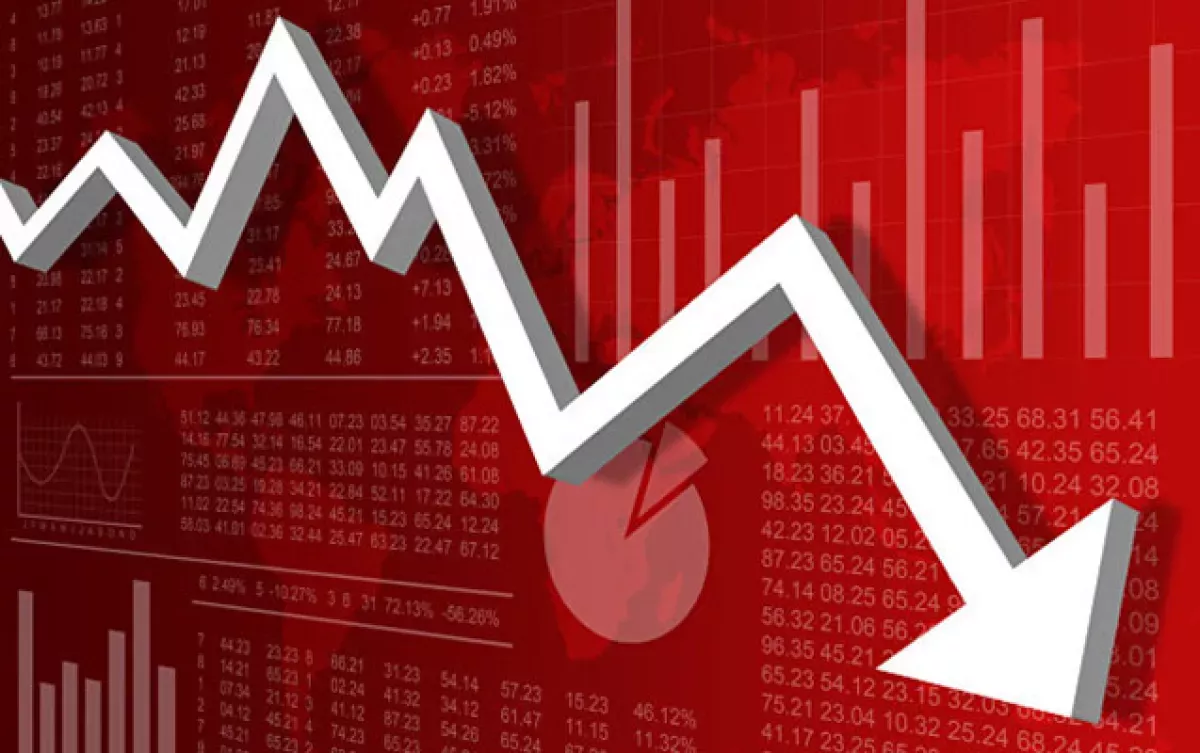What lies ahead for Syria after collapse of Assad's regime? Forecast by Caliber.Az
The collapse of Bashar al-Assad's regime marks a new chapter in Syria's history.
The country now faces the critical question of who will be able to maintain power and unify its fragmented territories. Leader of Hayat Tahrir al-Sham (HTS) Abu Mohammed al-Julani verbally expresses a willingness for change, but the question remains: will he be able to establish a stable state, or will the country face a Libyan-style scenario of endless internal conflicts? The economic collapse, sectarian divisions, and the need for sanctions relief are the key challenges that will shape Syria's future. Al-Julani has recently given an interview to CNN.
In it, he spoke about his jihadist past, noting that he had long moved away from such rigid beliefs and now holds a more tolerant stance toward various ethnic and religious communities.
"Different religious sects have lived on Syrian land for centuries, and this should continue," he stated. Are his words sincere? It's impossible to peer into his soul, although it's known that just eight years ago he led the Syrian branch of Al-Qaeda. However, his current political stance is shaped by objective circumstances, which we will discuss further. Al-Julani has proven himself to be a skilled manager and administrator. With the support of his allies, he successfully reorganised both the administrative and military structures in Idlib — a region that has remained unconquered by government forces throughout the entire civil war since 2011. He established a government, built a functional administrative apparatus, and implemented centralized tax collection.
At the same time, relying on his military power and security services, he suppressed around 200 Local Councils using repressive methods. These councils, elected by the multi-class and multi-ethnic population of Idlib, were popular among locals and dealt with everyday issues. Their dismantling sparked mass protests by Syrians against HTS — protests that were also brutally suppressed.

Al-Julani and his allies have managed to form modern combat units that, despite their light weaponry, are effectively coordinated by a central command.
These squads operate with a high degree of autonomy, allowing them to act flexibly on the ground. Communication and intelligence within their structures are flawless, compensating for the lack of heavy equipment. Instead of relying on tanks and artillery, they focus on mobility and swarms of drones, launched by specially trained teams to strike the enemy. Thanks to the principles of modern network warfare, they have achieved several significant victories over government forces. Currently, Al-Julani presents himself as a pragmatic politician. He engages in negotiations with Arab tribal leaders and representatives of various ethnic and religious communities—Shiites, Christians, Ismailis.
Aiming to craft a particular image for a Western audience, he demonstrates tolerance and carefully chooses his words. It is evident that his goal is to win the support of Western politicians and the business community, and these efforts are yielding results. Otherwise, CNN would hardly have given him a platform for an interview. However, it is important to remember that as far back as 2016, his group distanced itself from al-Qaeda and abandoned the idea of a global jihad, focusing instead on establishing a religious autocracy strictly within Syria's borders. As one commentator aptly put it, "jihadist internationalism has been replaced by Islamist nationalism."
However, one should not be deceived. The Taliban once also promised to protect the rights of Shiites and women before seizing power in Afghanistan, but the reality turned out to be far more brutal. How al-Julani will behave if he comes to power remains a major question. The issue of intolerance in Syria is just one of many problems the country faces. The civil war, sanctions, and the ineffective governance of Bashar al-Assad's regime have brought the country to a critical state. These factors will inevitably impact any new government, regardless of who leads it.

Under Assad's leadership, the Syrian army offered its soldiers a meager salary—just a few dozen dollars per month—and a scant ration consisting of potatoes, tomatoes, and cucumbers. Training for the soldiers was often nonexistent.
Military units were engaged in looting, extorting money from workers and entrepreneurs, and confiscating crops and property. Intense competition for resources between different factions led to even greater economic chaos. The Fourth Mechanized Division, commanded by President Assad's brother, Maher al-Assad, was especially notorious. Maher al-Assad, a key figure in facilitating Iran's influence in Syria, played a central role in these practices. These circumstances show why the Syrian army deteriorated and why society, including ethnic and religious minorities, refused to support it.
For most citizens, Assad's army became synonymous with oppression and corruption. However, the devastation in the country was exacerbated not only by internal issues. The "Caesar Act" passed by the US Congress, imposed strict sanctions on Syrian companies and any foreign partners conducting business with them. This resulted in Syria's economic isolation. Today, the majority of its citizens live below the poverty line, struggling even with basic food and goods. Physical survival has become a daily battle, which has completely eroded the motivation to fight for Assad.
One can blame external forces for the worsening situation—and this is true. Syrians certainly have no reason to sympathize with the US. However, sanctions are only part of the equation. Why has Assad failed to establish effective economic governance? In addition to the economic collapse, other factors are impacting Syria. A crucial role is played by ethnic and sectarian communities, led by wealthy and influential tribal sheikhs and religious leaders. The influence of the wealthy ethnic, tribal, or sectarian elite on the population is quite significant. The majority of Syrians are Sunni Muslims, while the leadership belongs to the Alawite clan, which comprises only 10-12 per cent of the population.
Financial Times noted that even before the civil war began, Assad’s family, through control of both state and private enterprises, including industry and trade, controlled 50 per cent of the country’s GDP. Many senior positions in the army and intelligence services were held by members of the Alawite sect, which caused significant frustration among the Syrian population. In the past, HTS has clashed with representatives of various communities, which became a factor that drove these groups to support Assad. As a result, today, Al-Julani is seeking to negotiate with religious minorities. He openly declares that violence against the Christians of Aleppo is unacceptable, and his people distribute food in the Shiite town of Nubl. Of course! His position is currently unstable, and he cannot afford any problems as he fights for power.
But what kind of policy will he pursue if he comes to power? At the beginning of the Arab Spring in 2011, some observers with socialist views hoped that, in case of an uprising against Assad's regime, the city and region of Aleppo, home to 4 million people, would showcase a model of a new economy and political system. This region was home to up to half of Syria's industrial output and nearly all of its export-oriented production, as well as the country's most skilled workers and specialists. Some observers anticipated a powerful working-class uprising—one controlled by labour collectives and elected self-governance bodies, similar to the workers' councils of Tehran in 1978. Such events have occurred in the past in various regions of the Middle East and around the world. Why couldn't Aleppo become the centre of the Arab Spring, sparking a movement that would spread across the Middle East?
On the contrary, Israeli analyst Jonathan Spyer was proven right when he stated that the Arab Spring ultimately boiled down to a confrontation between two forces, both controlled by wealthy and influential local leaders — the Islamists and the military regimes. Both forces managed to harness the population's dissatisfaction with their living and socio-economic conditions. As a result, today, Aleppo has become the starting point for the victorious march of Al-Julani's jihadists against Assad's military forces. Whatever the ideology of the new regime may be, it will have to address the same issues faced by previous rulers of Syria. Al-Julani will need to establish relationships between the various religious and ethnic communities, as well as between the large family clans (tribes), while also attempting to revive the economy. Otherwise, he risks falling into the same trap that Assad found himself in.

To revive Syria's economy from the ruins under capitalism, foreign investors and extensive trade are required. This means that the new Syrian government will have to work towards lifting American sanctions. Otherwise, neither the Gulf countries, nor Europeans, nor the Chinese will invest in Syria. Therefore, there is some chance that the new regime (likely an authoritarian rule led by Al-Julani and the HTS government) will try to establish at least a partially tolerant attitude towards the millions of minority representatives.
The bad news is that even this is not guaranteed. However, Al-Julani may face other, more pressing issues: after the fall of Assad's regime, various factions, both Sunni and minority-linked, could engage in a struggle, similar to what happened in Libya. HTS is merely the most influential group among Syrian militants, the strongest in terms of military power, and it has powerful allies. However, it is unlikely that HTS has the resources to subdue the entire country. One thing Syria has no shortage of is weapons and as is well known, power comes from those having guns.
One possible scenario is the Libyan model. As a result of the Arab Spring, which began in 2011, the regime of Muammar Gaddafi, which was opposed by the population, eventually fell, and the country then descended into the Second Civil War. Today, Libya remains divided among several armed groups led by officials and military leaders, all vying for control over oil, gas, and wealthy cities.
The new government will face a difficult task: either attempt to implement reforms, including cooperation with the Gulf states, lifting the country from under US sanctions, and promoting tolerance toward minorities, or engage in a civil war between religious factions, tribes, and sects. Such a war could become endless.








